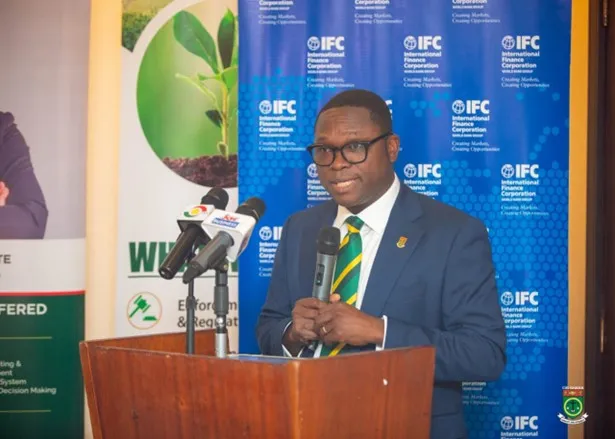

Ghana: Chartered Institute of Bankers unveils first ESG certification programme
The Chartered Institute of Bankers (CIB) Ghana has introduced an Environmental, Social, and Governance (ESG) certification program, representing a major advancement in the country’s financial sector.
This program, developed in partnership with the International Finance Corporation (IFC), the Environmental Protection Agency (EPA) Ghana, and the Swiss State Secretariat for Economic Affairs (SECO), aims to integrate sustainability principles into financial decision-making, aligning Ghana’s banking practices with international standards.
Elsie Addo Awadzi, Second Deputy Governor of the Bank of Ghana described the initiative as a move in the right direction. She was optimistic that the CIB ESG certification course will have a transformative impact on Ghana’s financial sector, promoting sustainable finance and responsible investment.
“I strongly encourage the industry to take full advantage of this, and to call on educational institutions to partner with CIB to make this even stronger,” she added.
As the first ESG certification of its kind in Ghana, she urged the Institute to maintain the high standards set and encouraged industry professionals to use the program to develop crucial ESG competencies.
Robert Dzato, CEO of CIB Ghana, stressed the importance of the programme in the context of Ghana’s domestic environmental challenges. “Recent developments in our domestic environment, such as the degradation of land and water bodies, have made the need for this programme even more urgent. Financial institutions must play a pivotal role in addressing these issues,” he said.
He emphasized the extensive collaboration and preparation that went into developing the program. Mr. Dzato also highlighted the program’s importance in managing emerging risks and promoting responsible business practices.
The ESG certification course is organized into six comprehensive modules over a 10-week period, covering crucial topics such as sustainable finance frameworks, environmental risk management, social impact assessment, corporate governance, regulatory compliance, and ethical investment strategies.
This curriculum aims to equip financial professionals with the knowledge and tools necessary to integrate ESG principles into their decision-making processes effectively.
Mr. Dzato also warned that businesses neglecting ESG principles risk missing out on significant opportunities.
“Neglecting ESG considerations is not just a moral oversight; it’s a strategic misstep. Businesses that fail to integrate ESG into their operations will find themselves at a competitive disadvantage,” he added.
The programme was particularly designed for senior frontline staff, ESG managers, segments heads, internal auditors, compliance managers, risk managers in financial institutions. Independent consultants will also benefit from the programme.
















